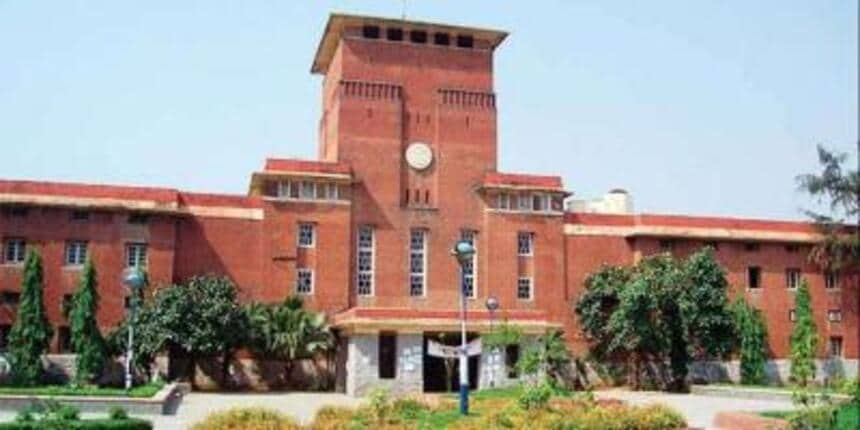DU forms panel to review proposal for increased central govt representation in its Executive Council
Press Trust of India | October 16, 2024 | 10:29 AM IST | 3 mins read
The Centre's proposal suggests the inclusion of the Secretary, Higher Education, Ministry of Education, or their nominee as a member of the Executive Council.
Colleges/Universites Accepting CUET Score
Download list of Colleges/ Universities Accpeting CUET/CUCET Score with Cut-OFFs
Download Now
NEW DELHI: Delhi University Vice Chancellor Yogesh Singh has constituted a committee to examine a proposal aimed at increasing the involvement of the central government's representation in the varsity's Executive Council (EC), its highest decision-making body. The move was among several key proposals approved during a meeting of the Executive held on Monday, according to an official statement said.
Latest: Check DU PG Seat Allotment 2025 | Vacant Seats for Spot Round 4
DU PG Spot Round 2025: First Cutoff | Second Cutoff | Third Cutoff
DU PG 2025: Third Cutoff | Second Cutoff | First Cutoff
Don't Miss: NIRF DU Colleges Ranking
The Centre's proposal suggests the inclusion of the Secretary, Higher Education, Ministry of Education, or their nominee as a member of the Executive Council. The committee is tasked with submitting a report to the vice chancellor after considering all aspects of the matter, the statement said.
During the meeting, the EC passed the university's Strategic Plan 2024-2047 which outlines DU's long-term vision. Additionally, the vice chancellor has been given the authority to make decisions on the Institutional Development Plan (IDP), another important planning document for the university, as noted in the official statement.
A 10-year extension of the lease of the university land allocated to the Maurice Nagar police station at a nominal rate of Re 1 per month was also approved, a move that some members have opposed. Raising concern over the extension, EC member Aman Kumar said, "The land should be reclaimed to build new hostels and staff quarters as there is a pressing need for more infrastructure facilities. Students are forced to live off-campus at high rents without proper amenities."
On the inclusion of the Education Ministry's nominee in the EC, Maya John, a member of the DU's Academic Council, said, "Such measures taken together represent the concerted effort of the ruling dispensation to increase its surveillance on academicians, curb the academic autonomy of universities, and compel college and university teachers to be politically subservient to the ruling dispensation."
She pointed out that central universities already have nominees of the Visitor (President of India) and the Chancellor (Vice President), arguing that an additional representative is unnecessary. Seema Das, an EC member, raised objections to the proposed Institutional Development Plan (IDP), saying it promotes privatisation and undermines public-funded higher education. "The IDP emphasises private funding, shifts focus from public to autonomous colleges, increases student-teacher ratios, and omits elected representatives in statutory bodies, which could deprive marginalised communities by disregarding reservation policies," she said.
GDMOs monthly fee has been raised from Rs 45,000 to Rs 55,000
Another proposal approved involved increasing fees for part-time General Duty Medical Officers (GDMOs) working at university health centers. Their monthly fee has been raised from Rs 45,000 to Rs 55,000, effective from October 2024, with an annual 5 per cent increment starting April 1.
The EC also approved the introduction of East Asian language courses at Ramjas College, Hansraj College, and Ram Lal Anand College. Courses in Korean, Chinese, and Japanese, ranging from certificate to advanced diploma levels, will be offered across the institutions. In addition, a Bachelor in Medical Laboratory Science (BMLS) programme at the Department of Microbiology, UCMS, received approval.
A new super-specialty course Doctorate of Medicine (Pediatric and Neonatal Anesthesia) at Lady Hardinge Medical College was also sanctioned. The meeting also accepted recommendations to continue recognising the Institute of Home Economics (IHE) as a maintained college under the university's ordinance.
Follow us for the latest education news on colleges and universities, admission, courses, exams, research, education policies, study abroad and more..
To get in touch, write to us at news@careers360.com.